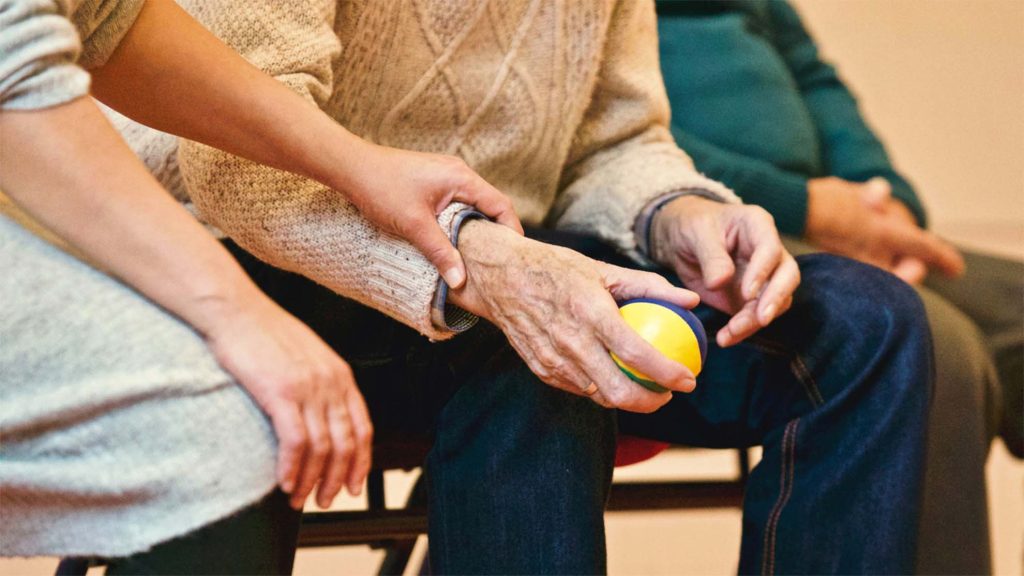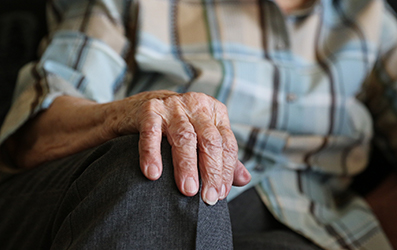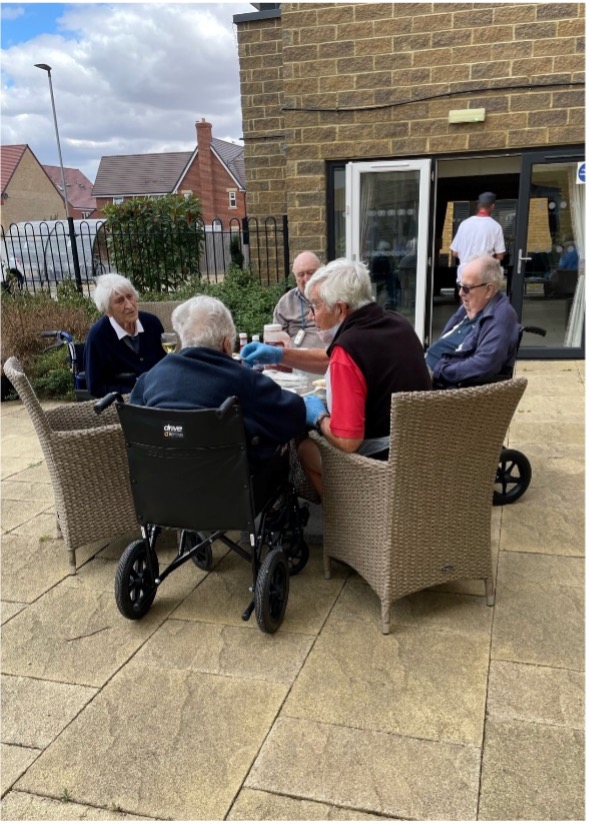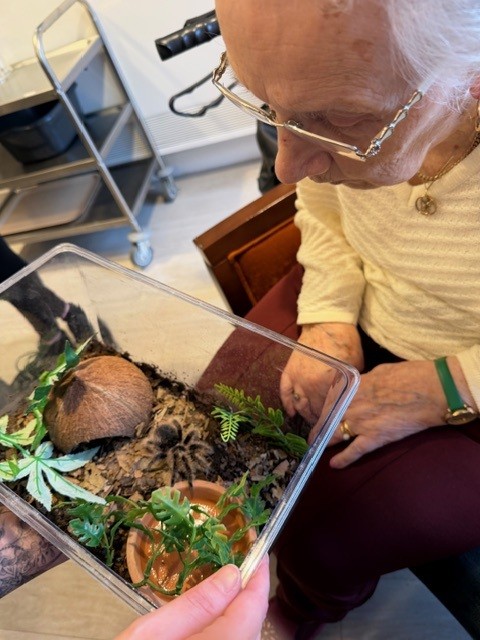How Can a Care Home Help Those Living With Dementia?




Dementia is a progressive condition that most commonly affects older people, causing a decline in their speech, memory, cognitive skills and social abilities. These changes can make it difficult to navigate daily life, and many individuals living with dementia require additional care and support to maintain their quality of life. There are currently 994,000 people in the UK with dementia, which is predicted to grow drastically over the upcoming years. Over time, every individual’s symptoms will progress resulting in them needing support with personal care and daily chores, as tasks such as washing, eating and getting dressed can become increasingly difficult.
There will come a time when these individuals may be unable to receive the care they need whilst residing at home and full-time care at a care home or nursing home may need to be considered. The process of finding a care home isn’t always easy as there are many factors that affect a person’s choices. Care homes are designed to provide a continuum of care for those living with dementia in an environment ideal for them. If you have noticed at home that your loved ones’ mental capacity has decreased to a point where you are struggling to look after them at home and it’s taking its toll on you, then moving into a care home will be the best next step for everyone involved. If you hold power of attorney over your loved one, you can make decisions on behalf of them, such as moving them into a care home if you believe this will benefit them long-term.
At the heart of a care home is the belief that every individual should be treated with respect and dignity. Care homes recognise that those living with dementia are unique individuals with their own experiences, preferences, and needs. To support this, care homes provide personalised care plans that take into account each person's needs, hobbies and interests. Care plans are created in collaboration with the individual, their loved ones, and the care home team, ensuring that the resident's needs are at the centre of everything that is done. By providing personalised care, care homes can help the person living with dementia maintain their independence, dignity, and sense of self.
How Do Care Homes Support Those With Dementia?
There are many elements to a care home that support dementia residents which we have listed below for a better understanding:
Offer a Safe and Secure Environment
Care homes are designed to be secure and offer a familiar, homely environment for residents, to ensure everyone feels safe and comfortable in their surroundings. Each care team will tastefully furnish the home in order to make residents feel at home as it can have a lasting impact on their mood and overall well-being. The layout of a dementia unit is designed to reduce confusion, with clear signage, memorable decorations and easy-to-navigate spaces. As well as this, there are health and social care professionals within care homes who are fully trained in dementia care so can identify early signs of confusion, agitation or distress and offer support and comfort to relieve these symptoms.
Experienced Health and Social Care Professionals
Care homes offering dementia care will employ a full-time experienced and caring team specialising in dementia and who will have a deep understanding of the challenges associated with dementia to provide the highest level of care to residents. They work closely with residents and their friends and family members to create personalised care plans that are reviewed on a regular basis to cater for developing needs and ensure each aspect of a person’s life is tended to. Team members will receive regular training for this long-term care type and will adapt to the latest trends and needs of each person.
An All-Inclusive Activities Programme
As part of their expansive facilities and amenities, care homes typically offer an all-inclusive activities programme, designed to promote physical and mental stimulation, socialisation and engagement among people with dementia. This programme often includes a range of activities, such as exercise classes, reminiscence classes, music therapy, art classes, and more. These activities are tailored to the needs and interests of residents, helping them to maintain their independence and dignity.
Social Opportunities
As part of the varied activities programme, there will be ample social opportunities for residents to socialise with others around them or the local community with hosted events at the home or externally which helps to reduce the feeling of loneliness or isolation. In a care home, there are multiple dining areas and lounges where residents can spend time with their loved ones or other like-minded individuals. Residents are always given the choice of what they want to do, which means they can live independently and do the things they enjoy whilst forming lifelong bonds with staff and fellow residents.
Premium Levels of Care
Within a care home life, you should expect premium levels of short-term and long-term care. The majority of care homes will have a team of nurses and care assistants on-site that will provide around-the-clock support and person-centred care. A care home’s ethos is to enhance an individual’s quality of life and staff will work tirelessly to achieve this. The care provided is tailored to each individual to ensure their own health and well-being needs are met, which in turn allows them to live a rich and meaningful life.
Support For Loved Ones
Whilst residents are always the top priority to care homes, their family and friends also deserve support as they play a huge part in their daily life. Care homes understand the impact that dementia and its progression can cause the loved ones of a resident. Some care homes will organise a support group where friends and family members can come together and share their personal experiences with others in a similar position and share advice, or the care home will provide advice or support to loved ones.
If you would like more information about the resources available surrounding dementia and care, we recommend using the following free services::
You can also contact your local authority to learn more about what funding may be available.
What We Do To Support Our Dementia Residents at Penrose Court Care Home
Penrose Court Care Home is a private, luxury care home situated in the residential area of Kings Reach in the market town of Biggleswade. We believe that every individual deserves to lead a fulfilling life, and we can provide this through our unrivalled levels of Dementia Care, Residential Care, Nursing Care and Respite Care and the beautiful environment we have created for our residents.
We have a dedicated and friendly dementia care team available 24/7 to ensure our dementia residents live a full life each day. We provide suitable activities and therapies that have been specifically tailored to our dementia residents which help to improve mood, communication and cognitive skills. Our dementia team has been trained and has the experience to support every resident living with dementia to the highest degree, allowing residents to experience the things that bring them joy in a safe environment.
We take pride in the reviews we receive from residents or their loved ones through top-rated review websites, and take on board each factor noted in the review in order to constantly improve our services at Penrose Court:
My Mum arrived at Penrose Court Care Home in the Month of February 2020, Mum resides on Level 2 which is the Dementia floor - Mum settled well and finally became a permanent resident in September 2020 - the care seems to be quite settled with regular staff which is good for both Mum and us as a family. The home provides good care and is beautifully kept - always clean and tidy The food is always good with a variety of choices and different foods. The Manager is very approachable and helpful and does run a very well organised Home - and has some very good ideas for making Penrose Court a high-standard-of-care home - let's hope they all go ahead!! Review by C T (Daughter of Resident) via carehome.co.uk.



Contact Our Dedicated Team
If you have any further queries regarding our dementia care or any of our care services or facilities here at Penrose Court Care Home in Bedfordshire, then please don’t hesitate to contact us. You can reach us by calling 01767 777000 or emailing info@penrosecourt.com. Our friendly team will be delighted to help with any questions you may have.





